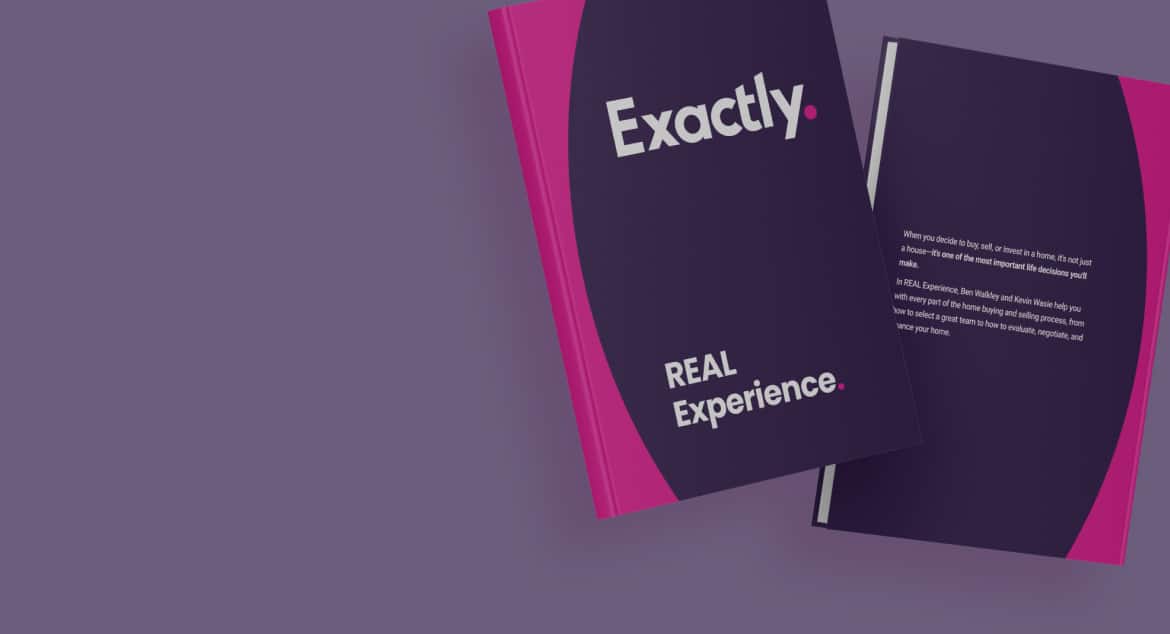Understanding How Smart Sellers Think About Net Return
1. Think Like a Business Owner, Not a Homeowner
The moment your home hits the market, you’re running a business with one product to sell. Your goal is to minimize expenses AND maximize profit—which means maximizing what you walk away with at closing.
Business owners understand that sometimes you spend money to make money. The question isn’t whether an expense feels fair. The question is whether it increases your net return.
This mindset shift changes everything about how you approach commission decisions.
2. What the NAR Settlement Actually Changed
Since August 2024, new rules changed how commissions work:
What Changed:
- Commission offers can’t be listed in the MLS anymore
- Buyers must sign agreements with their agents before touring homes
What Didn’t Change:
- Sellers can still offer buyer agent commissions
- Most buyers (88%) still use agents
- You still need to attract qualified buyers to get the best price
The economics didn’t disappear—they just became less visible.
3. You Have Permission to Change Your Mind
Maybe you’ve already decided against paying buyer agent commission. That’s completely understandable—it’s a significant expense that feels unfair at first glance.
But here’s the thing: smart people change their minds when they get new information. The most successful business leaders I know are quick to pivot when data shows a better path. That’s not weakness—that’s intelligence.
So as you read this, give yourself permission to reconsider. You’re not locked into any position, and being open to new perspectives is exactly how smart people make better decisions.
4. What We Learned When We Tested This
In 2018, we ran a study with 27 actual offers on real houses. Some buyers had agents, others didn’t. On the offers that did not have an agent, there was no buyer agent commission due from the seller.
Result: Sellers chose the agent-represented buyer 100% of the time.
Even after accounting for commission costs, agent-represented buyers consistently offered better terms—higher prices, fewer contingencies, stronger financing, cleaner deals.
This wasn’t theoretical. These were real sellers making real decisions with their own money.
The question is: What did these sellers know that made them willing to pay the commission every single time?
5. Why Buyers Actually Pay for Everything (Including Commissions)
Here’s what most people miss: the buyer ultimately pays for everything in a real estate transaction—purchase price, commissions, even your moving costs if you negotiate them in.
It’s like car financing. If you could only buy cars with cash, most people would drive much cheaper cars. But financing lets you spread the cost over time, so you can afford more car.
Real estate financing works the same way. When you offer a buyer agent commission:
- It gets rolled into their mortgage payment
- They can afford to pay more for your house
- Instead of needing $15,000 cash today, they pay $65/month for 30 years
- You get the full amount at closing
You’re not paying their costs—you’re making it easier for them to pay you more.
This is why agent-represented buyers consistently offer higher prices. They have more purchasing power because they can finance the commission instead of paying cash today.
Ready to see what offering a commission could mean for your sale?
📈 Use our free Seller Calculator to run your numbers.
6. Understanding Customer Acquisition Costs
Every business pays to attract customers. Amazon spends over $1,500 to acquire each Prime member. Restaurants pay delivery apps 30% of each order. Software companies spend months of subscription revenue on marketing.
Real estate is no different. You need qualified buyers to compete for your house. You can:
- Pay for advertising and hope buyers find you
- Wait for the small percentage of unrepresented buyers
- Or offer a commission to access the network that brings you qualified buyers daily
Think of commission as your customer acquisition cost for serious, qualified purchasers.
7. How Small Friction Kills Big Deals
Threshold resistance is when tiny barriers prevent people from taking action, even when they want to. Retail stores learned this the hard way—fancy window displays that looked too expensive made regular shoppers afraid to walk in, even when affordable items were inside. Restaurants discovered that menus without prices scared away customers who assumed they couldn’t afford it. Small friction, big impact on behavior.
My Facebook Marketplace Story
I experienced this myself with a Facebook Marketplace purchase. I found the perfect pet fence. Great price, seller lived 4 minutes away, exactly what I needed. We agreed on everything.
Except she only accepted cash.
I didn’t have cash with me. I meant to stop at the ATM on the way home. But I got busy, forgot, and never went back. Deal died.
She still needed to sell. I still needed a fence. But that one extra step—getting cash—created just enough friction to kill the transaction.
This same psychology applies to real estate. When you require buyers to pay their agent separately in cash, some will choose easier options instead. It’s not logical, but it’s human nature.
8. Buyer Agents Are Translators Who Sell Your House
Think about visiting a foreign country without a guide. You might find decent restaurants, but you’ll miss the best local spots, cultural highlights, and insider knowledge that make the experience special.
Buyer agents are translators who help buyers understand your home’s value. They explain:
- Why your renovation choices add value
- How your neighborhood compares to others
- Why your price makes sense in current market conditions
- What features matter most for resale
Without this translation, buyers often miss or undervalue what makes your house special. Agent-represented buyers consistently offer more because they better understand what they’re getting.
9. You’re Buying Access to a System, Not Paying for One Showing
Some sellers think: “Why should I pay thousands for someone to walk through my house once?”
That’s like going to a restaurant and saying: “Why am I paying $25 for this piece of chicken?”
You’re not just paying for chicken. You’re paying for:
- The chef’s training and skill
- All the kitchen equipment and systems
- The server’s knowledge and service
- The supply chain that sourced quality ingredients
- The marketing that brought you there
- The entire system that gets you fed efficiently
Similarly, buyer agent commission buys you access to:
- Professional buyer qualification systems
- Scheduling and showing coordination
- Market knowledge and pricing expertise
- Negotiation skills for structuring competitive offers
- Transaction management that prevents deal failures
- The entire network that connects serious buyers to your house daily
You’re not buying a single service—you’re buying access to the machine that moves houses.
10. You’re Buying Access to Where the Buyers Already Are
Think about advertising. You could put an ad in a tiny local newsletter for $50, or pay $500 to advertise on Facebook where millions of people are already scrolling.
The agent network is where 88% of qualified buyers already hang out. They’re working with agents, getting notifications about new listings, and actively house hunting every day.
When you offer commission, you’re buying access to this existing pool of active, qualified buyers. Without it, you’re like that local newsletter—hoping the small percentage of unrepresented buyers happen to find you.
You’re not supporting a system. You’re buying access to where your customers already are.
11. Why Agent-Represented Buyers Are Better Buyers
Buyers who hire agents signal several important things:
Financial Capability: They can afford professional representation, indicating stronger financial position.
Serious Intent: They’ve invested time and commitment in the buying process, not just browsing.
Professional Guidance: They’re less likely to make mistakes that kill deals—failed inspections, financing issues, unrealistic expectations.
Market Knowledge: They better understand current conditions and fair pricing.
Deal Completion: They have professional help navigating the complex closing process.
These buyers don’t just offer more money—they’re more likely to actually close the transaction.
12. Understanding Your Options (And Avoiding False Economy)
You essentially have three approaches:
| Option | Pros | Cons |
|---|---|---|
| Offer competitive buyer agent commission | Access to the full buyer network, faster sales, higher offers, better deal quality | Higher upfront commission expense |
| Offer below-market commission | Some cost savings while maintaining partial network access | Reduced agent enthusiasm, fewer showings, longer timeline |
| No commission offer | No commission expense | Limited to cash buyers and unrepresented buyers (about 12% of market), much longer timeline, likely lower offers |
Beware the false economy trap.
This is like buying cheap tires to save $200, then getting stranded on the highway six months later. Sometimes saving money in the wrong places costs you more money later.
Many sellers choose Option 3 to “save” on commission, then end up with longer marketing time, multiple price reductions, and ultimately lower net proceeds. The question isn’t which option costs less upfront—it’s which option puts more money in your pocket at closing.
You can absolutely choose Option 3. But understand you’re opting out of the system that moves 88% of houses, often for higher prices.
13. The Real Question
The question isn’t whether commissions are “fair.” The question is: Which approach puts the most money in your pocket at closing?
Sometimes paying commission costs you money. Sometimes it makes you money by attracting better buyers faster.
The key is understanding:
- Your local market conditions
- Current buyer behavior in your price range
- How quickly you need to sell
- What competition you’re facing
When selling your largest asset, the goal is optimizing net return, not minimizing individual expenses.
14. A Final Reality Check
There’s an old poker saying: “If you sit down at the table and can’t figure out who the sucker is, it’s you.”
In real estate, if you think you’re outsmarting a system that’s been working for decades by avoiding commissions, you might want to ask yourself: What do I know that all the successful sellers don’t?
Maybe you do know something they don’t. Maybe you’ve found a better way. But if thousands of sellers keep choosing to pay commissions despite having the option not to, there’s probably a reason.
Sometimes the smartest move is recognizing that the market might know something you’re still learning.
The Bottom Line
You’re not required to participate in the traditional agent system. You can sell without offering commissions, just like you can travel without guides, eat without restaurants, or find jobs without LinkedIn.
But if your goals are maximizing sale price and minimizing time on market, you’re often better off paying for access to the systems that deliver those results.
The choice is yours. Just make it based on likely outcomes for your specific situation, not emotions about fairness.
Ready to Explore Your Options?
Let’s analyze your specific situation and build a winning strategy.







